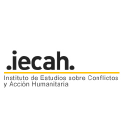WORKING WITH DG ECHO AS AN NGO PARTNER | FPA 2014 - 2020
6. IMPLEMENTATION
1. General information
2. Humanitarian organisation in the area
3. Needs assessment and beneficiaries
4. Logic of intervention
5. Quality markers
6. Implementation
7. Coordination
8. Monitoring and evaluation
9. Visibility
10. Financial overview of the action
11. Request for derogation
12. Administrative information
13. Conclusions and humanitarian organisation’s comments
Logframe Overview
6.1 HUMAN RESOURCES AND MANAGEMENT CAPACITIES
The partner must explain briefly how human resources (both expatriate and local) will be mobilised to ensure an effective and efficient implementation of the Action.
It will explain for instance the organisational and management structure put in place (e.g. at the Action's locations, at capital level, at regional level, or in exceptional cases the structures in place for remote management).
When applicable in the context of the Action, the partner will also specify if specific technical qualifications will be required.
6.2 EU AID VOLUNTEERS
“Do you intend to deploy in the framework of the Action?” This section concerns only partners participating in the EU Aid Volunteer initiative launched by ECHO. The default answer to the question is “No”.
If you are one of the organisations participating in this initiative and if you intend to employ EU Aid Volunteers in the framework of this Action, click on the option “Yes” or “do not know yet”.
This section will only be used for information purposes. This section has no influence on the decision to fund or not the action.
6.3 EQUIPMENT AND GOODS
This section emphasizes the importance of the eligibility requirements in relation to the procurement of supplies. (Supply chain and eligibility)
The partner will provide information on major equipment and goods in particular when the purchase of these supplies has an impact on the implementation of the Action. Concerning the goods, the partner will inform ECHO whether it plans to replenish stocks of goods procured thanks to other funding. More information on stocks is provided in the FPA guidelines.
The partner will inform ECHO about specific procurement arrangements and possible constraints linked to this procurement (e.g. lengthy, complex procedure). In those cases, it might be recommended to include the procurement in the activities or in the work plan. Close links should be made with the assumption section.
In those cases where the partner intends to purchase food and medical supplies, without the support of one of the Humanitarian Procurement Centres, it will indicate here briefly how it intends to ensure the quality standards of the items purchased.
The partner can provide here also information on possible market analysis made in relation to the purchase of food locally(ref. section 4 of annex III of the FPA)
The partner may also provide information about the necessity of expensive support equipment in case the partner does not intend to apply depreciation.
6.4 USE OF HUMANITARIAN PROCUREMENT CENTERS (HPC)
The partner will inform ECHO of its intention or not to use an HPC for its procurement. This section has no influence on the decision to fund or not the action. The by-default answer is “NO”.
6.5 WORK PLAN
Reminds the partner that it has to attach a work plan to the proposal. The work plan is an important tool to assess the feasibility of the Action.
A common way to present a work plan is through a Gantt chart. Other possibilities exist and can be used as long as they are clearly presented and commented upon.
6.6 SECURITY
This section is to be filled in only where and when relevant or when specifically asked by ECHO i.e. in those contexts where security is a key element for the success of the Action. If this is the case, the partner has to provide an assessment of the security constraints linked to the Action.
Requirements about security, when applicable, can be found in the Technical Annex of the HIP.
In case a specific protocol has to be established outside the standard procedures for the country, the partner will provide some details of this protocol. When necessary, the partner will make reference to the contingency measures in section 4.6.
If the partner replied “Yes” at section 6.2 on EU Aid Volunteers, it will explain here how the security of the EU Aid Volunteers will be ensured.
6.7 IMPLEMENTING PARTNER
DEFINITION
DG ECHO would like to underline and clarify that an IP is any (legal) entity other than the FPA-holder (i.e. the Partner signing the grant agreement with DG ECHO), to which the Partner or an IP entrusts any task under an ECHO-funded action, and transfers the corresponding financing. In this respect, an IP is any of the following entities:
-
Other FPA-holder entities (i.e. a DG ECHO FPA Partner that is implementing project activities under the direction of the Partner signing the Grant agreement for the specific action). Those other FPA Partners may or may not be affiliated with the Partner to which the grant is awarded (any such affiliation is irrelevant in this situation).
-
Non-FPA entities affiliated to the grant-holder or with which the latter is affiliated (e.g. NGO families, networks, federations, etc.). Such entities may be involved in the implementation of an action, for example with the following functions (not mutually exclusive): a) Performing administrative and programmatic tasks; b) Performing operational tasks, e.g. implementing the action as the registered entity in the country of implementation.
-
Local entities: Non-FPA entities established in the country of implementation of the action (e.g. local or grassroots organisations).
-
Non-local non-FPA entities: Non-FPA entities, which are neither affiliated to the grant-holder nor established in the country of implementation of the action.
INFORMATION ON IMPLEMENTING PARTNERS TO BE PROVIDED
- At proposal stage: Partners provide provisional, but comprehensive, list of IPs (including their name, address, type, share of the budget allocated etc.)
- During the implementation: Partners add or remove IPs from the SF while the action is ongoing through a non-essential change9 whenever they decide to collaborate with an IP. If the Partner considers that the change would have significant operational consequences or may raise problems in terms of compliance with the humanitarian principles, it is obliged to contact DG ECHO under its duty of full information sharing foreseen in Article 5 of the General Conditions.
- At final report stage: Partners ensure that exhaustive information on all IPs is included in the SF before submitting the Final report.
6.7.1. Are there any implementing partners ? The partner has to indicate first whether it intends to work with implementing partners or not. The default answer is “No”.
-
If the answer is “No” or “Do not know yet”, the partner can go directly to section 7. The partner will have the possibility to modify these statements later during the Action implementation.
-
If the answer is “Yes”, the sections below will be displayed and the partner will be invited to answer the questions.
6.7.4 Coordination, supervision and controls
In this section, the partner will explain what are the overall mechanisms of coordination, supervision and control put in place in relation to various implementing partners. In particular, the partner will explain how it intends to screen the risks of fraud and what are the measures taken to minimise them.
If specific supervision or controls are needed for one of the implementing partners, it will have to be explained in the section “Type of relationship with implementing partner(s) and the expected reporting by the implementing partner”.
By clicking on the button Add a partner, it will be possible for the partner to add as many implementing partners as necessary to give a fair representation of how the Action is being implemented. The number of Implementing Partners to include will depend on the level of involvement in the Action and the budget managed. The Partner should in any cases include the Implementing partners which will be the recipient of a donation (goods or equipment).
The partner will have to choose first whether the implementing partner is a FPA partner or not.
-
For the FPA partner, information to be provided is the name (from the proposed list) and the share of the budget for which the implementing partner will be responsible. If the FPA partner is itself entrusting a major part of the activities to a local implementing partner, it will have to open a section for this partner.
-
For the non-FPA partner, the information to be provided includes the name, the address, the status and the share of the budget allocated to the implementing partner. Depending on the status of the implementing partner, in the narrative field, the partner may explain how the non-FPA partner was selected or it can provide any other relevant information on the implementing partner.
The budget share to be provided is an estimated percentage of the share of the budget implemented by the implementing partner, without indirect costs.
In the following box, the partner will provide brief information on the role to be carried out by the implementing partner. It is not necessary to repeat information already provided elsewhere in the Single Form (for instance under Activities). The information provided might be very concise (e.g. in charge of result 1).
In the section Type of relationship with implementing partner(s) and the expected reporting by the implementing partner the partner will explain what type of relationships have been established with the implementing partner and whether there is a legal commitment or a link of another nature (e.g. network, MOU).
As regard to the expected reporting, the partner will explain only the specific reporting measures taken for this implementing partner which are not covered under 6.7.3 (for instance, in cases where the implementing partner is responsible for the procurement of important quantities of goods or equipment, or when the IP is working in remote regions.
6.8 ARE THERE ANY SUBDELEGATEES?
6.8.1 Subdelegatees - Explanation
6.8.1 Subdelegatees - Add a Subdelegatee
6.8.1 Subdelegatees - Details (name and role)
6.9 Implementing partner list (as an annex)






